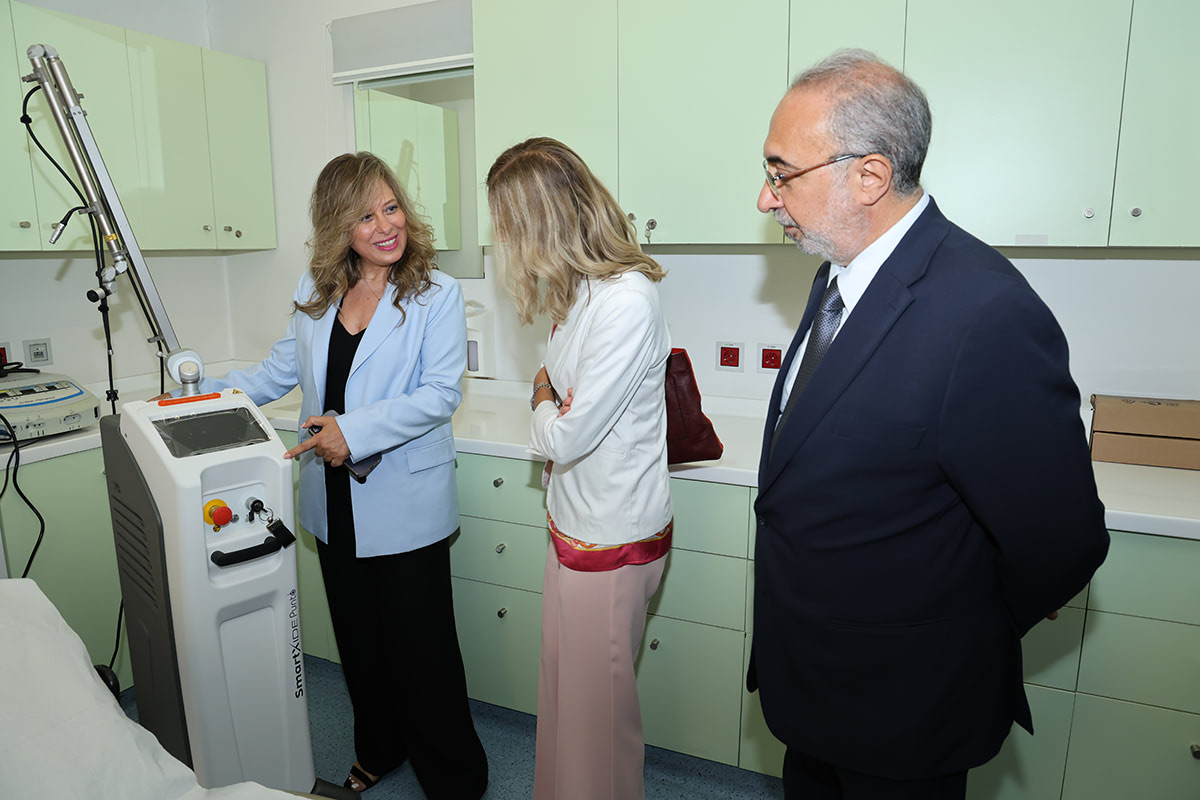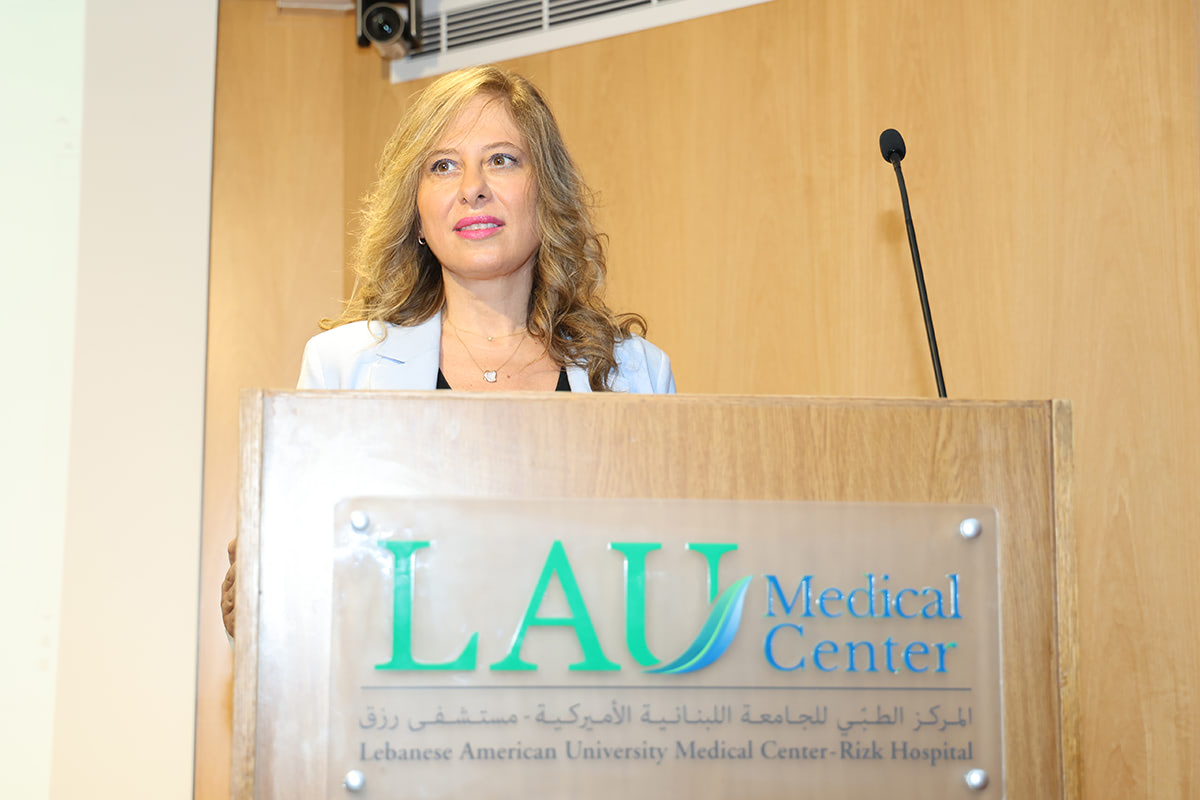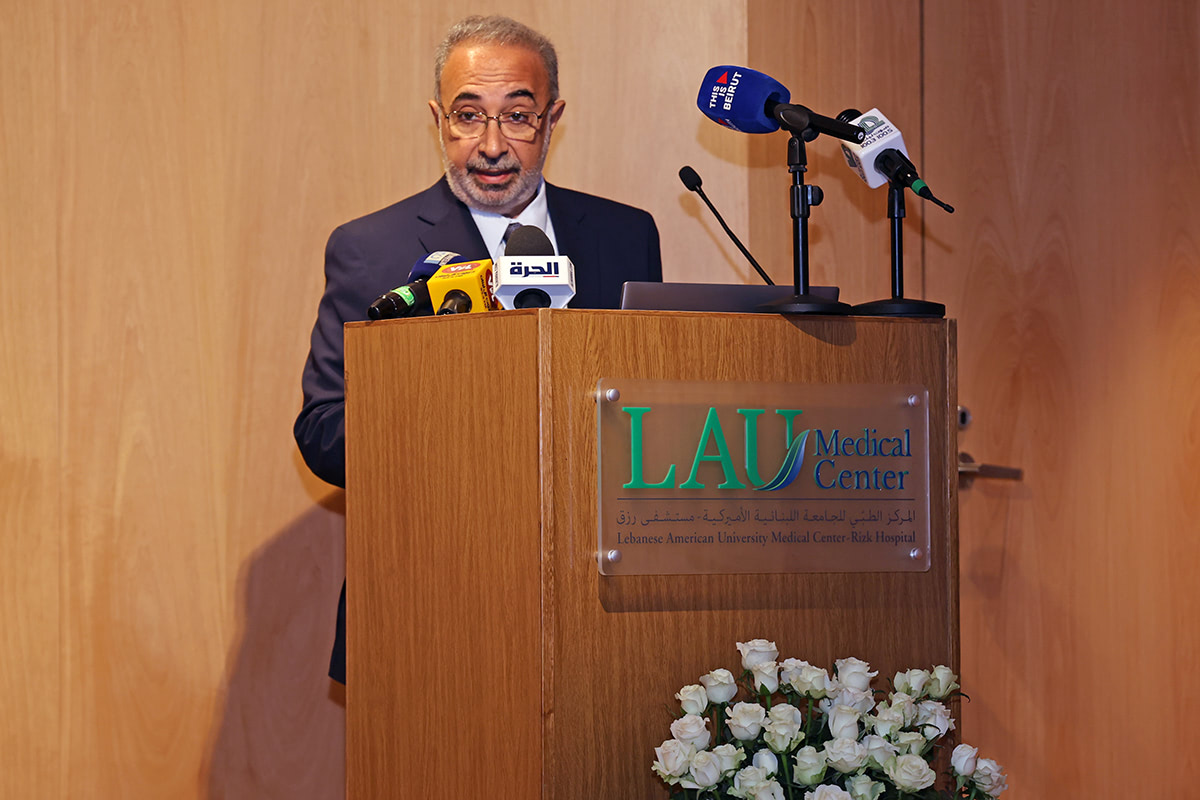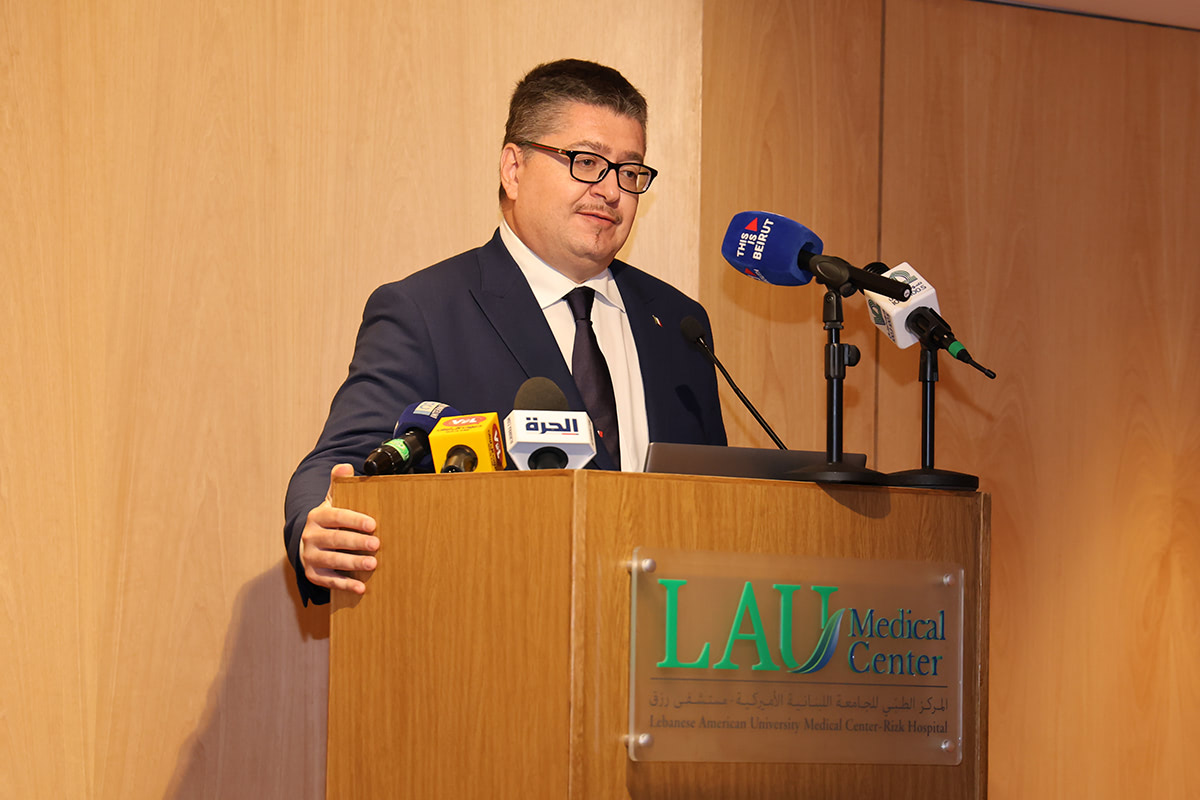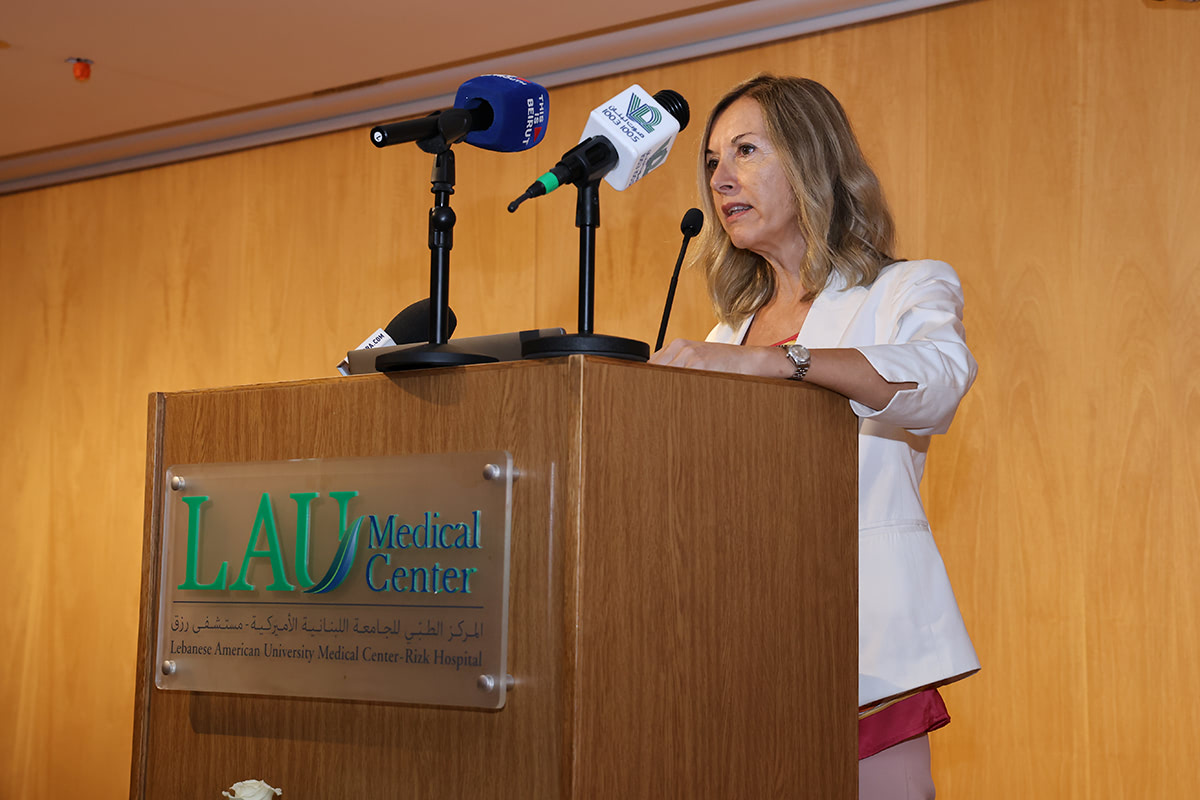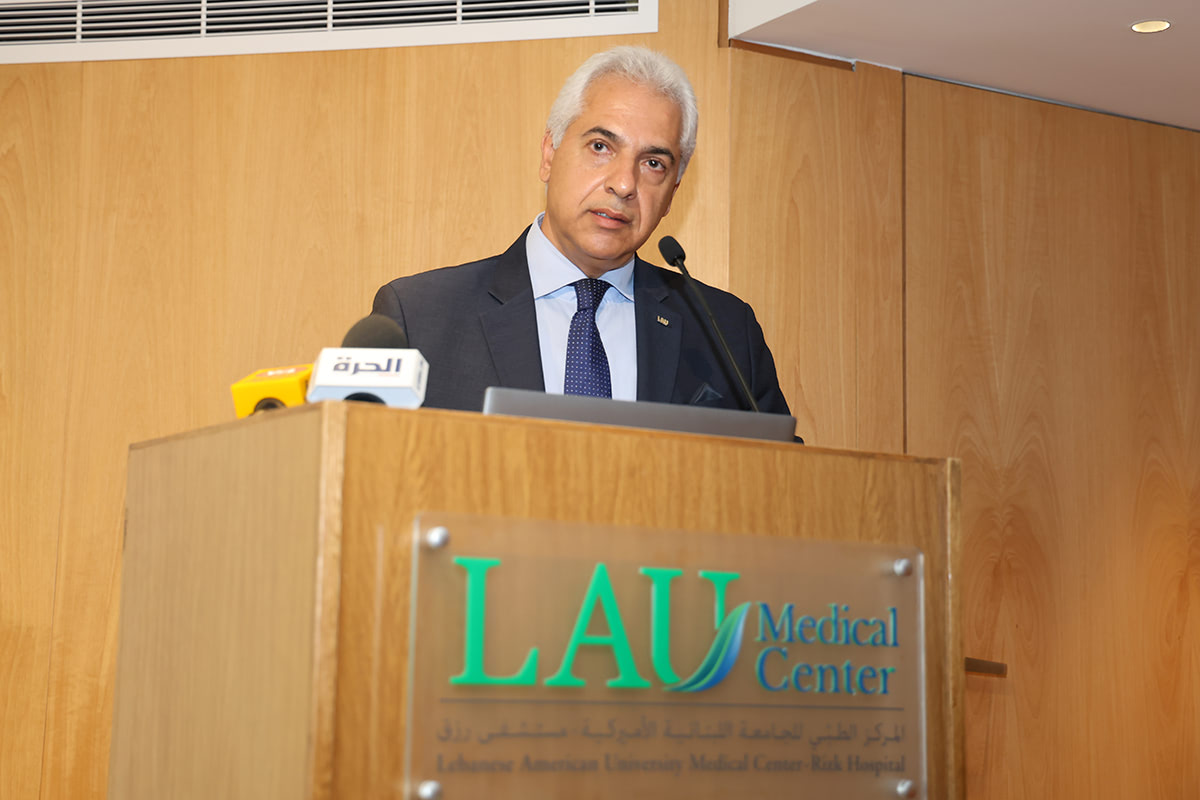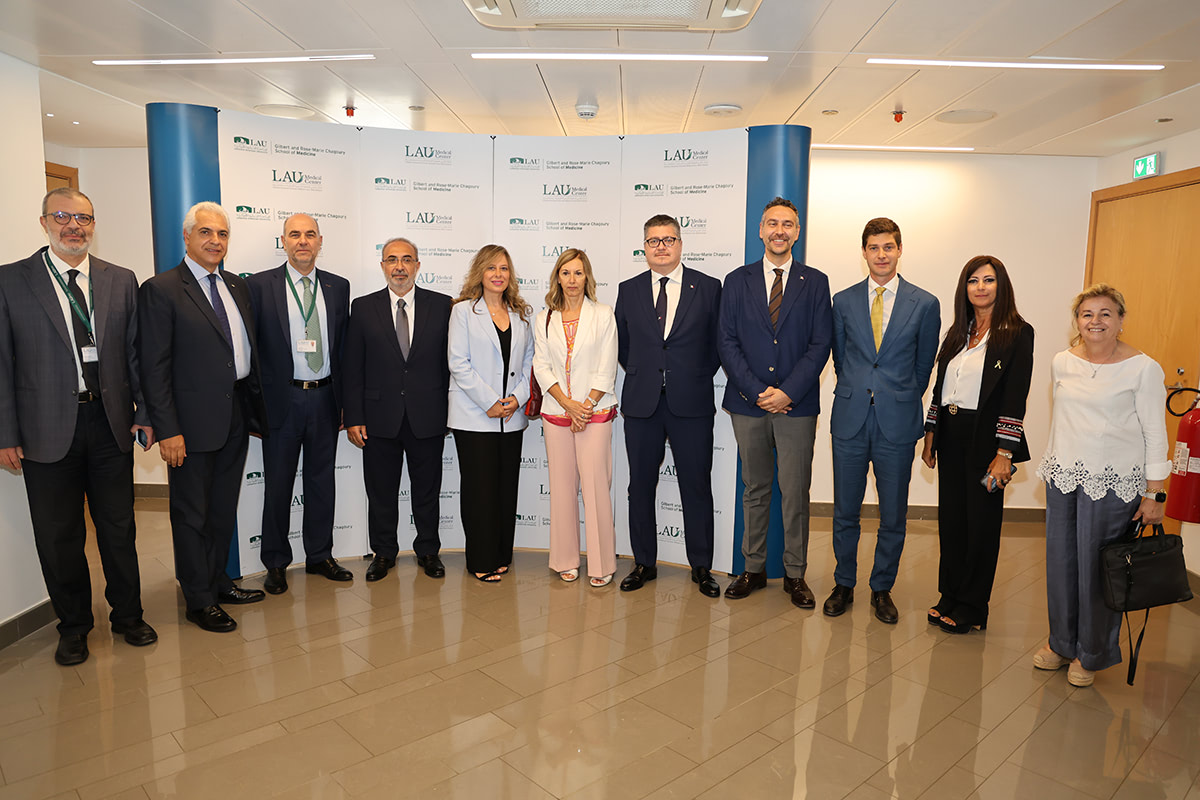Treating the Physical Scars of the Beirut Port Explosion
The LAU Medical Center-Rizk Hospital launches a philanthropic initiative to treat the disfiguring scars of the injured thanks to a generous donation by DEKA.
Three years after the cataclysmic explosion on August 4, 2020, decimated thousands of lives and homes, there is a glimmer of hope for those who have since suffered the pain and disfiguring scars of their injuries.
Thanks to a generous donation from DEKA – one of the leading companies worldwide in the design and production of medical laser equipment – the LAU Medical Center-Rizk Hospital is launching an initiative to treat, free of charge, the deep skin scars of the injured who cannot afford treatment with a specially designed state-of-the-art laser. A dedicated committee will be tasked with evaluating the patients for laser therapy.
Since that fateful day in 2020 when Professor and Founding Chair of the Department of Dermatology Zeina Tannous drove through scenes of carnage to get to the emergency room, she made it her mission to alleviate the suffering of the survivors.
Deeply affected “as a physician and healer” by the plight of a people who had limited access to medical care since the country’s economic collapse had impacted the healthcare system, she offered free laser therapy sessions to patients with low income.
She collaborated with national and international NGOs and donors to help fund the treatments, in the hope that by reducing her patients’ disfiguring scars – “a painful and eternal reminder of a tragic event” – she would foster in them “a sense of renewed hope and empower them to change their lives in the process,” she said.
Dr. Tannous knew however that a more effective laser and additional support were needed. As a keynote speaker at the Women’s Event during the 2023 Annual Conference of the American Society for Laser Medicine and Surgery in Phoenix, Arizona, she delivered a vivid account of infants with vascular lesions and victims of the Beirut explosion who could not afford proper treatment. Shortly after her poignant presentation, DEKA came forward with a fractional ablative laser for the hospital’s Dermatology Department that she chairs.
The new equipment was inaugurated at the LAU Medical Center-Rizk Hospital on July 25 in the presence of LAU Vice President for Health Affairs Tony G. Zreik – representing LAU President Michel E. Mawad and the LAU Health Foundation – CEO of the medical center Sami Rizk, Dr. Tannous, Italy’s Ambassador to Lebanon Nicoletta Bombardieri, DEKA CEO Paolo Salvadeo and Area Manager Francesco Badii, Managing Director of Omed General Trading – DEKA’s distributors in Lebanon – Hassan Othman and company executives, and Assistant to the President for Special Projects Saad El Zein, as well as physicians, nurses, and staff of the medical center.
By donating the state-of-the-art laser, said El Zein, DEKA had affirmed their support of Dr. Tannous’ “noble cause” and the medical center’s promise to serve and treat patients with compassion.
Dr. Tannous, in turn, expressed her deep gratitude to DEKA for their generous and vital donation, particularly as the thick scars that the injured sustained “were difficult to treat due to the presence of embedded foreign bodies,” such as glass and debris. The scars are painful and itchy, and though they will not disappear completely with laser treatment, they will clearly improve, she said.
She conveyed the scope and impact of the explosion and its aftermath through live news coverage of the blast, images of raised scars in various geometric shapes, and a testimonial of a victim with severe lacerations to her back whom Dr. Tannous had treated. The challenges she had met in her career and philanthropic journey, remarked Dr. Tannous, paled by comparison to the people’s hardship brought about by the country’s collapse, COVID-19, and the blast.
On the occasion of the third anniversary of the Beirut explosion, Dr. Zreik took the opportunity to thank “Mr. Rizk, the physicians, administrators, nurses, and employees who rushed to the hospital to treat the hundreds of victims of the blast on that tragic evening.” DEKA’s gift, he added, “goes a long way to heal and treat our community.”
Moved by Dr. Tannous’ visual presentation, Salvadeo qualified the donation as “a small gesture.” The idea for the donation, he said, stemmed from a recent discussion with Dr. Rox Anderson, a world specialist in photomedicine, who pioneered laser-based treatments and procedures for birthmarks, scars and other skin lesions. Dr. Anderson was Dr. Tannous’ mentor at Harvard Medical School, where she completed her dermatology residency and fellowships.
In answer to Salvadeo’s remark, Ambassador Bombardieri said DEKA’s gesture was by no means “small” but an “important commitment.” The scars the people of Lebanon have suffered have been material and non-material, she said, and Italy is doing its part in helping recreate the urban landscape and public health sector.
“I think after I have seen those images,” she remarked, “I will not remain silent and there’s no better way of commemorating the day that is approaching, the third anniversary of the explosion, than by recommitting to what we are doing.”
